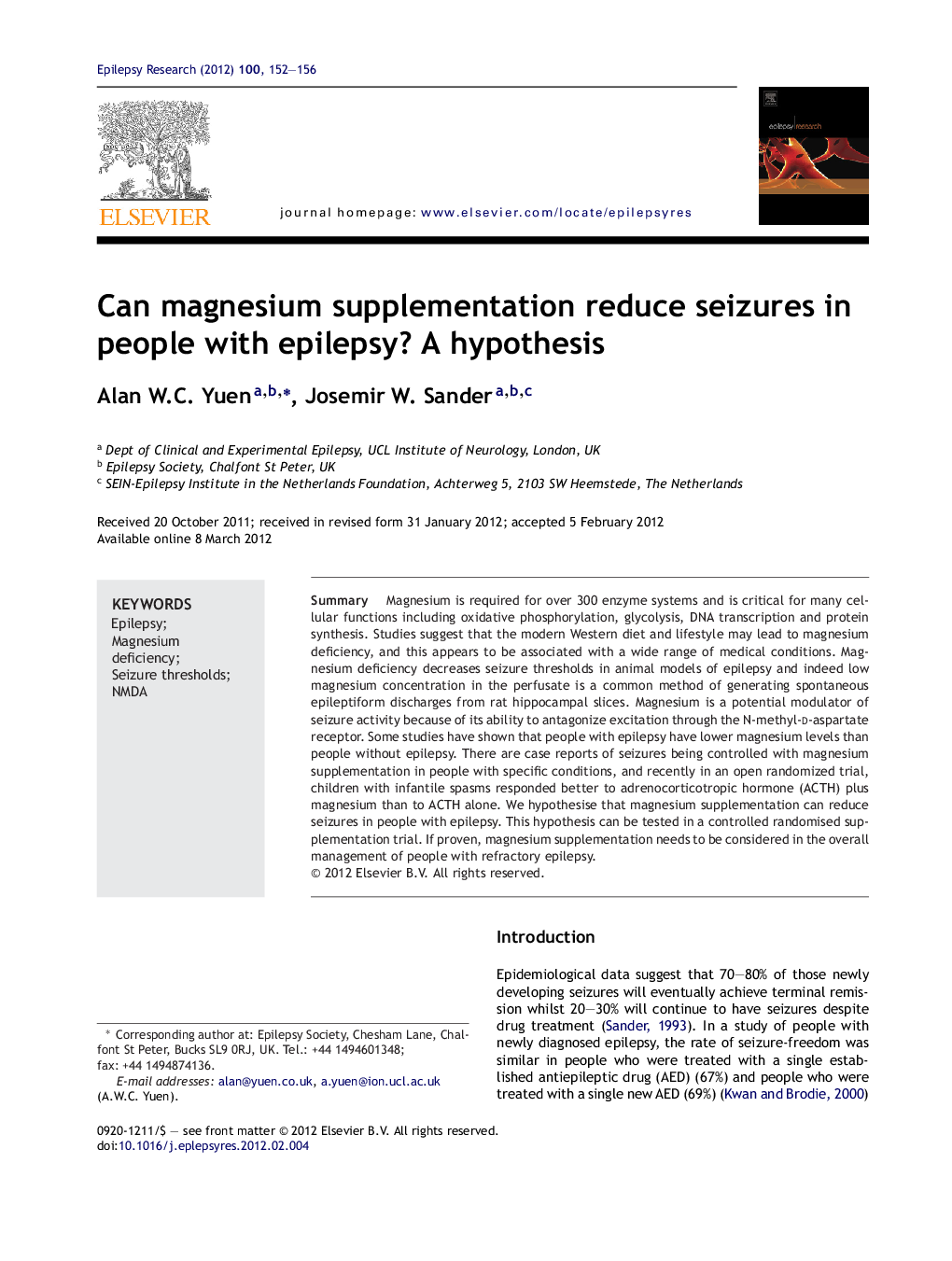| Article ID | Journal | Published Year | Pages | File Type |
|---|---|---|---|---|
| 3052310 | Epilepsy Research | 2012 | 5 Pages |
SummaryMagnesium is required for over 300 enzyme systems and is critical for many cellular functions including oxidative phosphorylation, glycolysis, DNA transcription and protein synthesis. Studies suggest that the modern Western diet and lifestyle may lead to magnesium deficiency, and this appears to be associated with a wide range of medical conditions. Magnesium deficiency decreases seizure thresholds in animal models of epilepsy and indeed low magnesium concentration in the perfusate is a common method of generating spontaneous epileptiform discharges from rat hippocampal slices. Magnesium is a potential modulator of seizure activity because of its ability to antagonize excitation through the N-methyl-d-aspartate receptor. Some studies have shown that people with epilepsy have lower magnesium levels than people without epilepsy. There are case reports of seizures being controlled with magnesium supplementation in people with specific conditions, and recently in an open randomized trial, children with infantile spasms responded better to adrenocorticotropic hormone (ACTH) plus magnesium than to ACTH alone. We hypothesise that magnesium supplementation can reduce seizures in people with epilepsy. This hypothesis can be tested in a controlled randomised supplementation trial. If proven, magnesium supplementation needs to be considered in the overall management of people with refractory epilepsy.
